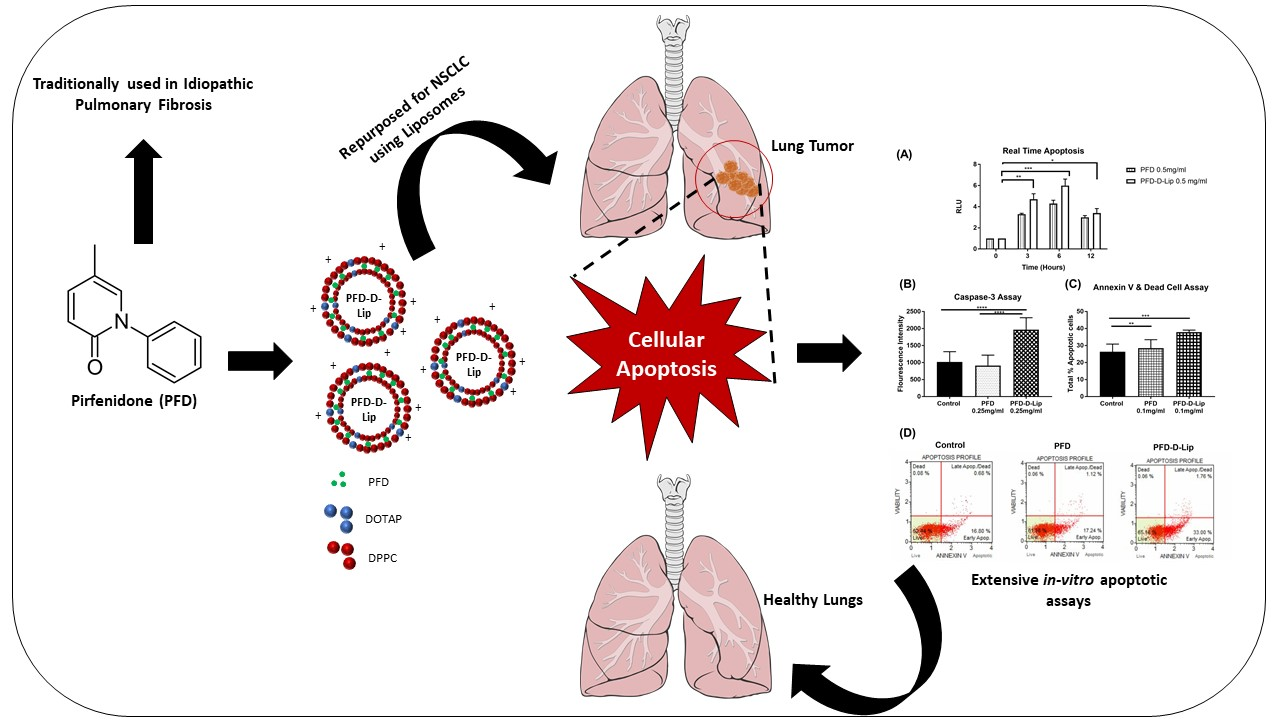Systematic Development and Optimization of Inhalable Pirfenidone Liposomes for Non-Small Cell Lung Cancer Treatment

Non-small cell lung cancer (NSCLC) is a global disorder, treatment options for which remain limited with resistance development by cancer cells and off-target events being major roadblocks for current therapies. The discovery of new drug molecules remains time-consuming, expensive, and prone to failure in safety/efficacy studies. Drug repurposing (i.e., investigating FDA-approved drug molecules for use against new indications) provides an opportunity to shorten the drug development cycle.
In this project, we propose to repurpose pirfenidone (PFD), an anti-fibrotic drug, for NSCLC treatment by encapsulation in a cationic liposomal carrier. Liposomal formulations were optimized and evaluated for their physicochemical properties, in-vitro aerosol deposition behavior, cellular internalization capability, and therapeutic potential against NSCLC cell lines in-vitro and ex-vivo. Anti-cancer activity of PFD-loaded liposomes and molecular mechanistic efficacy was determined through colony formation (1.5- to 2-fold reduction in colony growth compared to PFD treatment in H4006, A549 cell lines, respectively), cell migration, apoptosis and angiogenesis assays. Ex-vivo studies using 3D tumor spheroid models revealed superior efficacy of PFD-loaded liposomes against NSCLC, as compared to plain PFD.
Hence, the potential of inhalable liposome-loaded pirfenidone in NSCLC treatment has been established in-vitro and ex-vivo, where further studies are required to determine their efficacy through in vivo preclinical studies followed by clinical studies.
Download the PDF here or read the article here
Article Information: Vineela Parvathaneni, Nishant S. Kulkarni, Snehal K. Shukla, Pamela T. Farrales, Nitesh K. Kunda, Aaron Muth, Vivek Gupta; Pharmaceutics, 2020.

